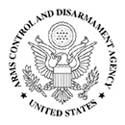See also
| | This disambiguation page lists articles associated with the title Conference on disarmament. If an internal link led you here, you may wish to change the link to point directly to the intended article. |
Conference on disarmament or disarmament conference may refer to:
| | This disambiguation page lists articles associated with the title Conference on disarmament. If an internal link led you here, you may wish to change the link to point directly to the intended article. |

The Treaty on the Non-Proliferation of Nuclear Weapons, commonly known as the Non-Proliferation Treaty or NPT, is an international treaty whose objective is to prevent the spread of nuclear weapons and weapons technology, to promote cooperation in the peaceful uses of nuclear energy, and to further the goal of achieving nuclear disarmament and general and complete disarmament. Between 1965 and 1968, the treaty was negotiated by the Eighteen Nation Committee on Disarmament, a United Nations-sponsored organization based in Geneva, Switzerland.

Nuclear disarmament is the act of reducing or eliminating nuclear weapons. It can also be the end state of a nuclear-weapons-free world, in which nuclear weapons are completely eliminated. The term denuclearization is also used to describe the process leading to complete nuclear disarmament.
Arms control is a term for international restrictions upon the development, production, stockpiling, proliferation and usage of small arms, conventional weapons, and weapons of mass destruction. Arms control is typically exercised through the use of diplomacy which seeks to impose such limitations upon consenting participants through international treaties and agreements, although it may also comprise efforts by a nation or group of nations to enforce limitations upon a non-consenting country.

Disarmament is the act of reducing, limiting, or abolishing weapons. Disarmament generally refers to a country's military or specific type of weaponry. Disarmament is often taken to mean total elimination of weapons of mass destruction, such as nuclear arms. General and Complete Disarmament was defined by the United Nations General Assembly as the elimination of all WMD, coupled with the “balanced reduction of armed forces and conventional armaments, based on the principle of undiminished security of the parties with a view to promoting or enhancing stability at a lower military level, taking into account the need of all States to protect their security.”

The Convention on the Prohibition of the Development, Production and Stockpiling of Bacteriological (Biological) and Toxin Weapons and on their Destruction was the first multilateral disarmament treaty banning the production of an entire category of weapons.

The Conference on Disarmament (CD) is a multilateral disarmament forum established by the international community to negotiate arms control and disarmament agreements based at the Palais des Nations in Geneva. The Conference meets annually in three separate sessions in Geneva.

The Washington Naval Conference was a disarmament conference called by the United States and held in Washington, DC from November 12, 1921 to February 6, 1922. It was conducted outside the auspices of the League of Nations. It was attended by nine nations regarding interests in the Pacific Ocean and East Asia. Germany was not invited to the conference, as it had already been disarmed under the terms of the Versailles Treaty. Soviet Russia was also not invited to the conference. It was the first arms control conference in history, and is still studied by political scientists as a model for a successful disarmament movement.

Stockholm International Peace Research Institute (SIPRI) is an international institute based in Stockholm. It was founded in 1966 and provides data, analysis and recommendations for armed conflict, military expenditure and arms trade as well as disarmament and arms control. The research is based on open sources and is directed to decision-makers, researchers, media and the interested public.

The United Nations Institute for Disarmament Research (UNIDIR) was established in 1980 by the United Nations General Assembly to inform States and the global community on questions of international security, and to assist with disarmament efforts so as to facilitate progress toward greater security and economic and social development for all.

The U.S. Arms Control and Disarmament Agency (ACDA) was an independent agency of the United States government that existed from 1961 to 1999. Its mission was to strengthen United States national security by "formulating, advocating, negotiating, implementing and verifying effective arms control, nonproliferation, and disarmament policies, strategies, and agreements."

The Under Secretary for Arms Control and International Security Affairs (T) is a position within the U.S. Department of State that serves as Senior Adviser to the President and the Secretary of State for Arms Control, Nonproliferation, and Disarmament.

The United Nations General Assembly First Committee is one of six main committees at the General Assembly of the United Nations. It deals with disarmament and international security matters.

The Conference for the Reduction and Limitation of Armaments, generally known as the Geneva Conference or World Disarmament Conference, was an international conference of states held in Geneva between February 1932 and November 1934 to accomplish disarmament in accordance with the Covenant of the League of Nations. It was attended by 31 states, mostly members of the League of Nations, but also the Soviet Union and the United States. It ended in failure.
The Italian Union of Scientists for Disarmament is an association established in 1982 with the purpose of providing information about and analysis of arms control and disarmament. Members of believe that this task is part of the social responsibility of scientists.

The UN Office for Disarmament Affairs (UNODA) is an Office of the United Nations Secretariat established in January 1998 as the Department for Disarmament Affairs, part of United Nations Secretary-General Kofi Annan's plan to reform the UN as presented in his report to the General Assembly in July 1997.
The 13 steps are identified in a paragraph of the Final Document of the 2000 Review Conference of the Nuclear Non-Proliferation Treaty, providing a set of 'practical steps for the systematic and progressive efforts to implement Article VI of the Treaty on the Non-Proliferation of Nuclear Weapons'. Article VI is the part of the Treaty that provides for disarmament, including nuclear disarmament.
The Eighteen Nation Committee on Disarmament (ENCD) was sponsored by the United Nations in 1961. The ENCD considered disarmament, confidence-building measures and nuclear test controls. Between 1965 and 1968, the ENCD negotiated the Treaty on the Non-Proliferation of Nuclear Weapons.
The Ten Nation Committee on Disarmament (TNCD) was designed to address the issue of nuclear disarmament during the Cold War. Created through the combination of a United Nations resolution and an agreement between the Big Four powers, the TNCD began work in March 1960. It remained intact from March - June 1960.

John Stewart Duncan OBE is a British diplomat. He was Ambassador for Multilateral Arms Control and Disarmament and UK Permanent Representative to the Conference on Disarmament, Geneva, 2006–11. In June 2013, he was appointed by Queen Elizabeth II on the advice of the British government, to represent the Queen as Governor of the British Virgin Islands, and to act as the de facto head of state in the Territory. Duncan arrived at the Islands on 14 August 2014 and was sworn in the following day and his term would last until 8 August 2017 when he was succeeded by Robert A. Mathavious.

The International Day against Nuclear Tests is observed on August 29. It was established on December 2, 2009 at the 64th session of the United Nations General Assembly by the resolution 64/35, which was adopted unanimously.